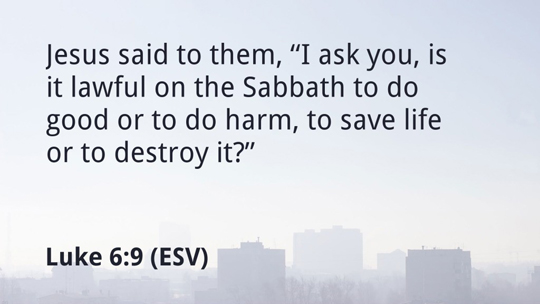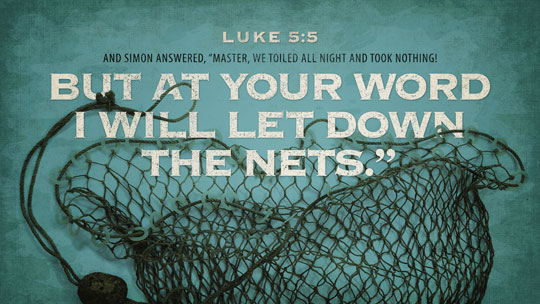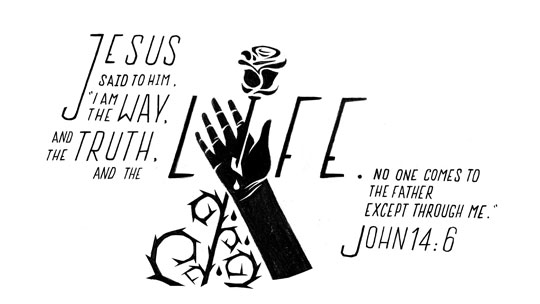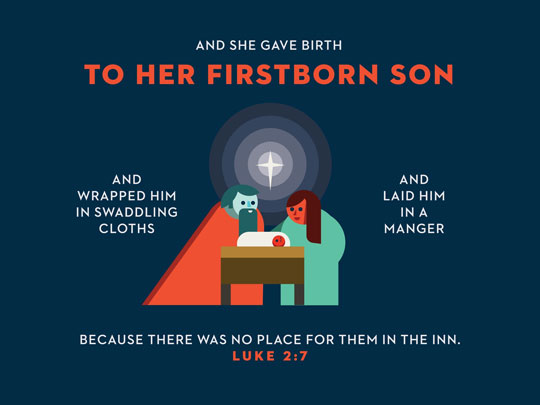
This sermon was preached by Brian Watson on February 3, 2019.
MP3 recording of the sermon.
PDF of the written sermon (or see below).
I have a question for the Patriots fans here: How many of you want the Patriots to lose today? Anyone? Do you think any of the Patriots woke this morning in Atlanta hoping that they would lose? Of course not! We want our team to win. Why? Because that will satisfy us. That will make us happy.
About sixteen hundred years ago, the great theologian Augustine observed this in his great book, The City of God: “It is the decided opinion of all who use their brains, that all men desire to be happy.” In his Confessions, he writes, “Is not the happy life that which all desire, which indeed no one fails to desire?” Everyone wants to be happy. Everyone wants the good life. But how can we be happy? How can we have the good life?
We often find happiness by getting things, whether it’s money or fame or, perhaps, by winning the big game. But experience tells us that we can’t gain happiness, or ultimate satisfaction, by winning. Fourteen years ago, Tom Brady won his third Super Bowl with the Patriots. A few months later, he was interviewed on 60 Minutes. This is what Brady said:
Why do I have three Super Bowl rings, and still think there’s something greater out there for me? . . . I reached my goal, my dream, my life. Me, I think: God, it’s gotta be more than this. I mean this can’t be what it’s all cracked up to be. I mean I’ve done it. I’m 27. And what else is there for me?
Of course, Tom Brady now has five Super Bowl rings, and today he has an opportunity to get a sixth. Yet something tells me that six championships won’t satisfy him. According to the psychologist Jonathan Haidt, “People who report the greatest interest in attaining money, fame, or beauty are consistently found to be less happy and even less healthy, than those who pursue less materialistic goals.”
After saying that in the interview, Brady was asked, “What’s the answer?” And Brady responded,
I wish I knew. I wish I knew. . . . I love playing football, and I love being a quarterback for this team, but, at the same time, I think there’s a lot of other parts about me that I’m trying to find. I know what ultimately makes me happy are family and friends, and positive relationships with great people. I think I get more out of that than anything.
I think that’s admirable of Tom Brady to say. Relationships certainly last longer than Super Bowl victories. But even those relationships, like all things in this life, come to an end.
So, the experiences of the rich, the famous, the accomplished tell us that happiness, that real life, doesn’t come through the greatest accomplishments.
It shouldn’t surprise us that the Bible tells us the same thing. For example, read the book of Ecclesiastes. Most of the book consists of the words of the Preacher, a wise and wealthy king. He finds that life “under the sun”—in this world, from our perspective—is “vanity and a striving after wind” (Eccl. 1:14). In other words, things don’t last. Even if we should have great pleasure, wisdom, and accomplishments (Eccl. 2), we will find those things empty. They won’t satisfy. And they don’t last. We could gain the whole world and lose it to decay and death.
According to Jesus, there is only one way to true happiness—to an abundant life that will ever end. Those things come not from winning, but from losing, which is contrary to what we would expect, and yet, it rings true with experience. If we first lose, we will gain, but if we strive to gain, we will lose.
Today, we will see that, and we will see once again who Jesus is and why he alone is the key to happiness and real life.
We’re continuing our study of the Gospel of Luke. We’re in chapter 9, which we started last week. So far, Luke has told us about Jesus’ birth and then the beginning of his ministry as an adult. He has been teaching people about the kingdom of God and performing miracles, and he has called twelve disciples—twelve special followers who are learning from him. As Jesus does amazing things, the question of his identity keeps coming up. When he healed a paralyzed man, he also said the man’s sins were forgiven, which led people to ask, “Who can forgive sins but God alone?” (Luke 5:21). Later, Jesus calmed a storm on the Sea of Galilee and the disciples ask, “Who then is this, that he commands even winds and water, and they obey him?” (Luke 8:25). Herod, the ruler of Galilee, heard about Jesus and asked, “Who is this about whom I hear such things?” (Luke 9:9). Now, this question will be answered.
Let’s begin by reading Luke 9:18–20:
18 Now it happened that as he was praying alone, the disciples were with him. And he asked them, “Who do the crowds say that I am?” 19 And they answered, “John the Baptist. But others say, Elijah, and others, that one of the prophets of old has risen.” 20 Then he said to them, “But who do you say that I am?” And Peter answered, “The Christ of God.”
Jesus was praying alone. Luke frequently mentions prayer, and I think it’s important that what happens is a response to Jesus praying. After praying, Jesus asks his disciples what the crowds are saying about him. Jesus isn’t trying to get polling data. He’s not worried insecure about whether his message is coming across or not, as if he were a politician. What he’s doing is making sure that the disciples know who he is. The crowds say the same things that we heard last week, several verses earlier, when Luke told us about what Herod heard (Luke 9:7–9). But when Jesus asks the disciples who he is, Peter answers for the group: “The Christ of God.”
“Christ” is based on the Greek word that means “anointed one.” Another word for this is “Messiah,” which is based on a Hebrew word. It was used of priests (Lev. 4:5, 16; 6:15), the king (1 Sam. 2:10, 35; 12:3, 5; 16:6; 24:7, 11; 26:9, 11, 16, 23; 2 Sam. 1:14, 16; 19:22; 22:51; 23:1), and to a special Anointed one (Ps. 2:2) who is also called God’s Son in Psalm 2:7. The prophets of the Old Testament spoke of a coming King, a son of David, who would rule forever (2 Sam. 7:12–16; Isa. 9:6–7; 11:1–5; Jer. 23:5–6). It might be that Peter had this kind of king in mind, a powerful political ruler who would be just and righteous.
In Matthew’s Gospel, he records a fuller answer given by Peter: “You are the Christ, the Son of the living God” (Matt. 16:16). (I suppose Luke has his reasons for only recording part of the answer.) When Simon Peter says this (in Matthew), Jesus says, “Blessed are you, Simon Bar-Jonah! For flesh and blood has not revealed this to you, but my Father who is in heaven” (Matt. 16:17). Peter has come to realize something true about Jesus, and this can only be known because it was revealed to him by God. Jesus’ true identity is not some bit of guesswork on our part. We don’t say he’s the Christ, the Son of God, because we’re speculating. We say that because God has revealed it to us through his written word, the Bible.
Even though the disciples were coming to realize who Jesus was, they still didn’t fully understand his identity. They didn’t fully understand why he came. So, Jesus starts to tell them more. Let’s read verses 21–22:
21 And he strictly charged and commanded them to tell this to no one, 22 saying, “The Son of Man must suffer many things and be rejected by the elders and chief priests and scribes, and be killed, and on the third day be raised.”
This is the first time that Jesus predicts his death and resurrection in clear terms. He refers to himself as the Son of Man, which is a name that comes from Daniel, who sees a vision of a figure “one like a son of man,” who comes to God and receives “dominion and glory and a kingdom, that all peoples, nations, and languages should serve him” (Dan. 7:13–14). But before Jesus assumes that position of glory, he must first be rejected the Jewish religious leaders, suffer, and die. This must have been quite a shock to the disciples. Luke doesn’t record what happens next, but Matthew does. We’re told that Peter takes Jesus aside and says, “Far be it from you, Lord! This shall never happen to you” (Matt. 16:22). Peter couldn’t imagine that the Messiah, the Christ, the Son of the living God, would die. It’s like he’s saying, “They can’t do that to you, Jesus. We’ll protect you. We’ll make sure they don’t harm you.” But Jesus’ response is harsh: “Get behind me, Satan! You are a hindrance to me. For you are not setting your mind on the things of God, but on the things of man” (Matt. 16:23). Remember that Jesus says, “The Son of Man must suffer.” That means it is part of God’s plan. To try stop Jesus’ suffering and death is to do the work of Satan, the devil, the one who is opposed to God.
If Jesus does not suffer and die, then God cannot save his people from their sin. He is not only the anointed one, the King of kings, but he’s also the suffering servant prophesied by Isaiah (Isa. 52:13–53:12), the one who would take the penalty of his people’s sin, be punished in their place, so that they could go free. God takes our sin very seriously because it is a rebellion against him. It’s a personal affront to him. But it’s also corruptive. It poisons his creation and destroys everything. The reason we can’t be completely happy and satisfied in this world, even under the best circumstances, is because of sin, which leads to our separation from God. We have a broken relationship that can only be healed if someone takes our punishment and unites us to God. That’s exactly what Jesus came to do.
The kingdom of God cannot come without the cross. You can’t know who Jesus and have a right relationship with him if you don’t acknowledge both his status as King and his suffering on the cross for our sin. You can’t know Jesus unless you realize that it was God’s plan to have him die in our place, to pay for our sin. And this was Jesus’ plan, too, as he knew full well. There are people today who say they are Christians who don’t seem to realize that Jesus is both Lord and Savior. They reduce him to a symbol of “love,” an example of how to be nice. In their view, it’s not clear that Jesus is God, and it’s not clear why he had to die. They call themselves “progressive Christians,” but their views have been around for a long time. About eighty years ago, Richard Niebuhr said this about this view: “A God without wrath brought men without sin into a kingdom without judgment through the ministrations of a Christ without a cross.” That kind of Christianity isn’t Christianity at all. It’s useless. We need God to have wrath over injustice, because he cares about right and wrong, and sin corrupts his creation. We need a Christ with a cross or else we would die in our own sins.
But Jesus didn’t come just to teach us to be nice, to be kind to one another. He came to rescue us from condemnation and to transform us. And if you want to be united to Jesus, which is the only way to have forgiveness of sins and eternal life, you have to be changed at the very core. Jesus starts to teach his disciples this in verses 23–27:
23 And he said to all, “If anyone would come after me, let him deny himself and take up his cross daily and follow me. 24 For whoever would save his life will lose it, but whoever loses his life for my sake will save it. 25 For what does it profit a man if he gains the whole world and loses or forfeits himself? 26 For whoever is ashamed of me and of my words, of him will the Son of Man be ashamed when he comes in his glory and the glory of the Father and of the holy angels. 27 But I tell you truly, there are some standing here who will not taste death until they see the kingdom of God.”
Jesus says that his followers need to follow in his footsteps. They must be willing to suffer as well. First, he says that his followers must deny themselves. They’re something within us that must be denied. He does not say, “I love you just the way you are.” He says, “There’s something wrong within you. You must change. You must deny your wrong desires, some of your natural inclinations.”
Second, he says that his followers must take up their crosses daily. Now, the cross for us has become a nice symbol. People wear it on necklaces. We see it in all kinds of designs. And we trivialize the saying, “We all have our cross to bear.” “Your husband snores? Well, we all have our cross to bear.” In the Roman Empire, the cross was an instrument of torture and death, reserved for slaves, for enemies of the state. It was reserved for terrorists. They were made to carry the crossbeam to the site of their death, the same beam upon which they would be impaled and hanged for hours or even days until they died, bearing that shameful death in public view. Perhaps we could recover a bit of the original shock of Jesus’ words if we imagined him saying something like, “You must be guillotined daily.” Though that was a quick death and crucifixion was not. C. S. Lewis once said, “He says, ‘Take up your Cross’—in other words, it is like going to be beaten to death in a concentration camp.”
What Jesus is saying is that we must be willing to suffer. We must also put to death those wrong desires, and we must do that daily. We don’t enter into a relationship with Jesus because we’re good. We are saved by grace, which means it’s a gift from God, not something we have earned. So, when we become Christians, it’s because we realize how messed up we are. We are not what we should be, and we realize that only Jesus can help us. As we follow him, we are a work in progress. Our old desires haven’t magically disappeared. Even when we feel like we’ve controlled them, they can still pop their ugly heads up. And when they do, we must cut those heads off again. We have to crucify the old desires—if they’re contrary to God’s ways. Not all desires are wrong. But there are some that are wrong and destructive, and they must die.
We also must be willing to suffer as Christians. Life as a Christian isn’t easy. It requires discipline, effort, work. We don’t work to earn God’s favor, but once we’ve received salvation, we’re supposed to “work it out,” or put it to use. The good news is that God gives us the strength to do that (see Phil. 2:12–13). He works in us through the Holy Spirit. But change comes slowly through effort, through practice. So, we have that internal battle. But there’s also an external battle. People will hate Christians. Jesus told his disciples, “If the world hates you, know that it has hated me before it hated you” (John 15:18). The world killed the most loving, perfect man who ever walked the face of this planet. It will not treat Christians differently. We must be willing to bear whatever hatred the world throws our way, including name-calling, being excluded, and even being persecuted.
Third, Jesus tells his disciples to follow him. We follow his example, but we must also obey his commands. In John’s Gospel, Jesus says, “My sheep hear my voice, and I know them, and they follow me” (John 10:27). Hearing and following means obeying what Jesus commands.
Now, if this all sounds too difficult, there is great news. Those who trust Jesus, take up their cross, and follow him will gain the whole world. They will be acceptable to God. They will experience God’s love and favor forever. But those who reject Jesus and try to gain the world on their own will lose it. This seems like a paradox.
There is something paradoxical about seeking meaning and happiness in this life. If you seek primarily after happiness, you likely won’t find it. That’s because we seek happiness in money and the things it can buy, often stuff, whether that’s clothing and jewelry or houses, cars, and gadgets. We think we’ll be happy when we’re more comfortable, or better entertained. But happiness often comes through focusing on others. When we help other people, when we live for something beyond ourselves, we find happiness. Seek after happiness, and you will likely lose it. Seek after something greater than happiness, and you’ll get happiness thrown in.
That same principle could be applied to so much in life. Want a good marriage? Don’t focus on trying to get your spouse to please you, or to create a romantic environment. Focus instead of loving your spouse. Want a good worship experience? You can try to manufacture a good experience of worship, by having the right physical environment and the right songs, but you can’t guarantee it will come. My best experiences in worship come at really odd times, like hearing someone sing a song about Jesus a cappella, or without accompaniment. The great preacher Charles Spurgeon once said this about trying to create an experience of the Holy Spirit: “I looked at Christ, and the dove of peace flew into my heart. I looked at the dove, and it flew away.” The point is that if you want a great religious experience, focus on Jesus and you’ll get it. But if you focus on a great religious experience, you won’t get it.
If we try to find ultimate meaning or happiness in the things of this world, or in ourselves, we won’t find it. But if we seek those things in God, we will. Augustine knew this well, which is why he writes things like these statements in his Confessions: “When I seek for you, my God, my quest is for the happy life.” “That is the authentic happy life, to set one’s joy on you, grounded in you and caused by you.” Christianity isn’t a joyless march to suffering and death. Christianity is actually about finding the greatest joy. But we find that joy in the very source of our lives, in God. If we seek for true life in anything less than God, we will only find death. We can gain the whole world and lose it, or we can give up control over our lives to God and find, in the end, that we haven’t lost anything, but we’ve gained everything
And after the suffering of this life comes glory. Jesus told his disciples that he would suffer and die, but he also said they would see the kingdom of God. We’ll look at this more next week, but after this passage, Jesus takes three of his disciples to the top of a mountain to pray. And as he prays, his appearance changes. His face starts gleaming. His clothes become a dazzling white. And the voice of God says, “This is my Son, my Chosen One; listen to him!” (See Luke 9:28–36.) This is a glimpse of Jesus’ true identity and a glimpse of what he is like after he dies and rises from the grave. Though he died, he rose in a body that is indestructible, a glorified body that can never die again. And all his followers will experience the same. Though we suffer and die in this life, one day we will be raised again in indestructible bodies and we will live with God forever in a perfect world. We will experience perfect, unending happiness, infinite joy. But that only comes after we first are willing to put our old selves to death.
So, what does this mean for us? The only way to be right with God, to have true peace, happiness, and to live forever in a perfect world, is to be united to Jesus. To be united to Jesus means being willing to come after him, deny yourself, take up your cross daily, and follow him. We have to put the old self to death and put on the new self.
Here’s what this doesn’t mean. Dying to self isn’t becoming a Buddhist and eliminating all desire and attachment. It doesn’t mean being stripped of all your personality and becoming a mindless slave or a robot. Christianity teaches us that we can enjoy God’s creation, when we use it rightly, according to his design. We can have fun. We have personalities. Not all desires are bad. Not every single aspect of us must change completely when we become Christians, though we the overall trajectory of our lives will change, our motives and purpose for living will change, and we will come under the rule of Jesus, not ourselves and our desires.
But Christianity does teach that things do have to change. And we need to use Scripture to know which things must change and how we must change. I think one passage of Scripture teaches us quite clearly.
In Paul’s letter to the Colossians, he indicates what the life of a Christian should look like. At the beginning of chapter 3, he says that Christians should seek Jesus and have their minds fixed on him, not primarily on all the things of this world. He says, “For you have died, and your life is hidden with Christ in God” (Col. 3:3). He also says that Christ is our life (Col. 3:4). In his letter to the Galatians, he says something similar. He says, “I have been crucified with Christ. It is no longer I who live, but Christ who lives in me. And the life I now live in the flesh I live by faith in the Son of God, who loved me and gave himself for me” (Gal. 2:20). Jesus now owns us and lives in us. Our old identity, our old selves must die so that we can truly live.
Then, Paul writes the following, which is worth reading. This is Colossians 3:5–17:
5 Put to death therefore what is earthly in you: sexual immorality, impurity, passion, evil desire, and covetousness, which is idolatry. 6 On account of these the wrath of God is coming. 7 In these you too once walked, when you were living in them. 8 But now you must put them all away: anger, wrath, malice, slander, and obscene talk from your mouth. 9 Do not lie to one another, seeing that you have put off the old self with its practices 10 and have put on the new self, which is being renewed in knowledge after the image of its creator. 11 Here there is not Greek and Jew, circumcised and uncircumcised, barbarian, Scythian, slave, free; but Christ is all, and in all.
12 Put on then, as God’s chosen ones, holy and beloved, compassionate hearts, kindness, humility, meekness, and patience, 13 bearing with one another and, if one has a complaint against another, forgiving each other; as the Lord has forgiven you, so you also must forgive. 14 And above all these put on love, which binds everything together in perfect harmony. 15 And let the peace of Christ rule in your hearts, to which indeed you were called in one body. And be thankful. 16 Let the word of Christ dwell in you richly, teaching and admonishing one another in all wisdom, singing psalms and hymns and spiritual songs, with thankfulness in your hearts to God. 17 And whatever you do, in word or deed, do everything in the name of the Lord Jesus, giving thanks to God the Father through him.
So, what do we put to death? “Sexual immorality, impurity, passion, evil desire, and covetousness, which is idolatry.” “Anger, wrath, malice, slander, and obscene talk.” Lying, a feeling of being superior to people who are different from us. In short, we have to stop being greedy, stop grabbing every kind of pleasure, stop making something other than God the ultimate reason why we live. Whatever we love most, whatever we trust in most, whatever dictates the course of our life—that is our God, that is what we’re truly worshiping. If any of the things we do causes us to worship a false god and reject God’s design for our lives, we need to kill it.
But it’s not enough to kill something bad. We must replace the bad with the good. So, what do we do? We become compassionate, kind, humble, meek, and patient. We bear with one another. We forgive one another. We love—not some generic love, but the way God instructs us to love. We thank God. And we “let the word of Christ dwell in [us] richly, teaching and admonishing one another in all wisdom, singing psalms and hymns and spiritual songs, with thankfulness in [our] hearts to God.” Notice that you can’t have a new self without God’s word, the Bible. And we can’t do it alone. We must meet together regularly and teach and admonish one another and sing together. And “whatever [we] do, in word or deed, [we] do everything in the name of the Lord Jesus, giving thanks to God the Father through him.”
That’s what it looks like to deny our selves and follow Jesus. And that can only come if we give ourselves—our whole selves—to Jesus.
Jesus never said, “Invite me into your heart.” That silly saying isn’t in the Bible. I hate some of the clichés we have because they give the wrong impression. That sounds like you can give Jesus a tiny portion of your life. Jesus doesn’t just want a little place in your heart. He wants your whole heart, you whole body, your whole mind, and your whole soul. When we invite Jesus into our lives, he takes them over. And that’s how things should be. If we try to retain control of our lives, we will drive them into a ditch. Controlling our lives leads to disaster. But if we let Jesus take over, he will bring us home, to God and all that comes with a right relationship with him: peace, meaning, happiness, security, and true, unending life.
C. S. Lewis had so much to say about this. I encourage you to read his Mere Christianity, one of the great books on Christianity. I’m tempted to give you a whole heaping of Lewis quotes on killing the old self, but I’ll end with just a short one: “The only things we can keep are the things we freely give to God. What we try to keep for ourselves is just what we are sure to lose.”
Notes
 Welcome and Announcements
Welcome and Announcements
 Welcome and Announcements
Welcome and Announcements










